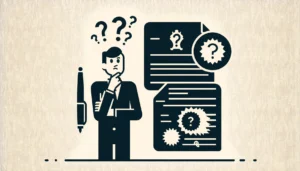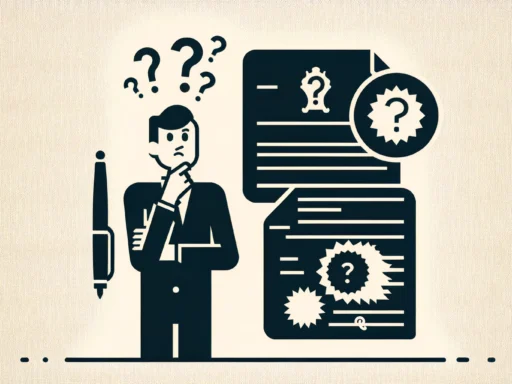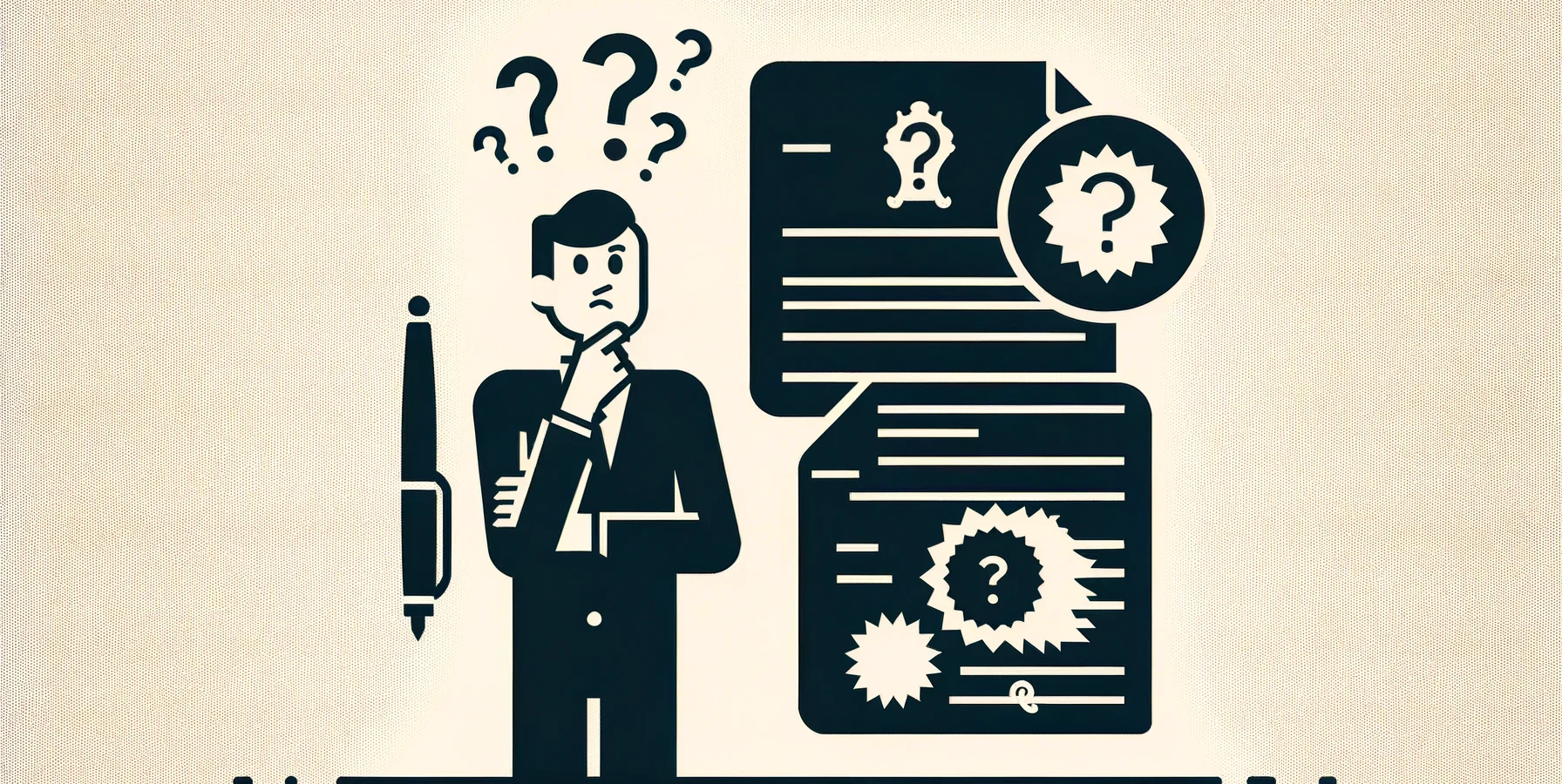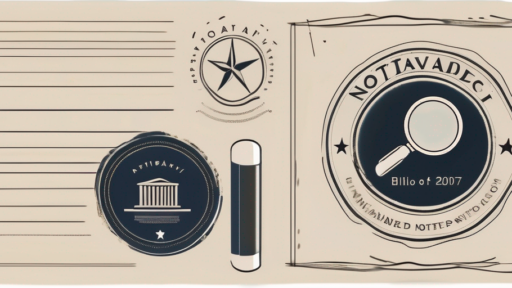Do you have to notarize an affidavit? In the world of legal documentation, the affidavit is unique because of its critical role in guaranteeing the factuality of declarations on oath by a different technique of law in the form of affidavits.
It not only demonstrates reasons behind the notarization but also gives a step-by-step guide on the subject and finally takes a deep dive into the question of what consequences it brings to different legal proceedings.
Those who want to notarize their affidavit should take into account the need to choose an experienced notary affidavit professional.
Utilization of notarized affidavit services, including online notary options, is a guarantee that your document is legally valid.
Rely on the expertise of people who will lead you through everything, making sure that your affidavit will be accepted across the legalities. With our help, identifying challenges is minimal.

What is an Affidavit, and Why is it Needed?
An affidavit is a written statement, legally signed or affirmed by the affiant, stating that his/her statements are true and are subject to the penalties of perjury. It finds its application in courts and administrative bodies as formal proof, enabling people to submit their allegations without the necessity of calling witnesses testimony.
The main contrast between an affidavit and a testimony is that the former is a sworn statement before a notary or an authorized officer, in the presence of whom the affiant declares the verity of the statements contained in the affidavit, and the latter is made by a witness before a judge or a magistrate, the former being a higher authority. However, it should be mentioned that sworn affidavits are possible to be full of lies that may serve as grounds for perjury charges. Therefore, affidavits are endowed with the force of a legal declaration by a witness, so any violations expressing perjuries can be prosecuted by the government.
Different Types of Affidavits
There are many types of affidavits that go with the exact matter that is required:
Financial Affidavit: A statement of money, assets, and debts is known as a Financial Affidavit and is mainly used in divorce and support cases.
Affidavit of Name Change: The record of the fact that an individual is changing his name, indicating his old and new name, the new one being legal for court, or the legal change of name department.
Real Estate Affidavit: The Real Estate Affidavit is used to confirm if you are the true owner of a given property or to provide details about a certain transaction, e.g., when you do a transfer of the title and close a deal.
Affidavit of Heirship: This document drives home the point that the person who has passed and left no will has some legally protected relatives who are eligible for the inheritance that he has left behind.
Sworn Statement (Declaration): By some legal systems or in Federal Government submissions, a Sworn Statement (Declaration) takes the place of an affidavit that is not notarized and is also declared under perjury.
Understanding Notarized Affidavits
What is a Notarized Affidavit?
A notarized affidavit means that the document is not only the words on a piece of paper, but it is a statement made under oath which is witnessed and testified by a notary public who confirms the identity of the person who has made the affidavit and also that the person’s statement is true and correct.
This confirmation of the person’s identity and that the perjury is not present leads to the affidavit being recognized as a powerful and sacred instrument of justice and law, which is commonly trusted and used in legal actions in various national and international judicial systems.”
The majority of lawful conditions indeed provide for the necessity of notarization as a means of security against fake claims and declarations of the authenticity of the document, even though certain affidavits may be considered legal without being authenticated by a notary.
Notarization plays the role of a wall that the person’s trust in the most crucial matters about the affidavit cannot break.
The Notarization Process Explained
When thinking about notarizing the affidavit, the first impression might be that you do not know where to start. Nevertheless, once you are aware of the proper steps, the task is easy.
It starts with the person who is writing the affidavit, ensuring that all the information is accurate and corresponds to the true situation.
Finding a confirmed agent, known as an affidavit notary, who has the right to notarize documents is the second most important thing you will do. This notary confirms the authenticity of the affidavit and the identity of the signer.
Applicable Laws and Regulations
A vast number of United States jurisdictions necessitate the use of notary services to make affidavits enforceable. However, the federal courts recognize that under 28 U.S.C. § 1746, unsworn declarations can also be admissible if a prescribed perjury language and date are part of the declaration and it is signed. The laws of the states vary; for example, Florida allows without a notary.
Florida allows only those two alternatives to notarization that are mentioned in the Florida Statute § 92.525, and New York’s CPLR 2106 allows notarization-free affirmations that have been made in state action on January 1, 2024, from the source.
Consequences of a Non-Notarized Affidavit
The absence of a notary’s seal and signature when it is mandatory will often lead to the following: Invalidity or Unenforceability: Courts can ignore a document that is not authorized, which delays or eliminates the lawsuit process.
Increased Fraud Risk: The failure to identify the signer might hinder the detection of challenged forged documents.
Perjury Exposure: The contact details/TIN of the landlord are not required in the affidavit that will still be accepted, which, if later found out, will not be good news for the landlord since he or she can be prosecuted for a fraudulent statement.
Case Disruption: If the document lacks notarization, then the parties may have to start the procedure anew or, as a result, they will incur other charges.
Does an Affidavit Have to Be Notarized, and Who Can Notarize It?
Traversing the legal maze, one may inquire, ”Who can notarize an affidavit?” A notary public, a person appointed by the state to serve as an indifferent witness for the signing of important papers, is the one to answer this question.
Does an Affidavit Have to Be Notarized? Where to Get It Done?
Disappearing or the unavailability of a notary public is an occurrence that is becoming even rarer as technological advances have given the opportunity of online notarization, which can allow you to meet this particular need from any location you happen to be attending to your other tasks. But if they are not your cup of tea, you can take the traditional way, bricks-and-mortar, with the providers who are within your reach.
Here is a 24-hour affidavit notarization side, which lists the most important items to carry with them and the person’s right to complete the required documents and decide about the transaction.
Doing the notarization of an affidavit needs careful attention to every detail and strict observance of the set legal rules.
Who you choose to carry out the notarization of your affidavit is of great concern.
Please make sure that you select notaries who regularly deal with such documents. They will be in a position to fully comprehend the specifics of your case.
The stage will come when the activity of getting the document ready (including all the required personal identification) and knowing the notarization process will make the whole process clean and easy, thus managing time efficiently and stress-free.
Many other documents can also be notarized besides an affidavit. Thus, confirming whether a document is a public one gives the notary the power to execute the deed.
Not only do these documents bring clarity, but they also provide evidence of significant elements.
One of the most significant benefits of notarizing these documents is that it deters fraud and provides clear proof to the concerned parties.
An affidavit is such a document that doesn’t necessarily carry with it the requirement of notarization. The notarization of an affidavit is required only when the document will be filed with some public authority, e.g., ca ourt, evidence, etc.
There are so many portable ways to find a notary public for notarizing your document in the current global village. The number of places to search for and get notary services is growing all the time. The most traditional of these are banks, lawyers’ offices, and government buildings.
The convenience of technology that has resulted in the emergence of online notarization services is now enabling the notarization of documents digitally from any place at any time.
This new method is especially suitable for the cases of an urgent nature or of remote notarization, typically characterized by where you can have the form notarized within a 24-hour time frame.”
Enlarging the Arena of Affidavit Notarization
Not only is the understanding of the legal provisions and procedures of notarizing affidavits a must, but the broader context and applications of this crucial legal practice also need to be comprehended.
We shall now look at the top six sides of notarizing affidavits, in which we can have a clear understanding of this important legal service.
Can you use an Affidavit without It Being Notarized in a Personal Context?
Though mainly, notarization is used for legal documents, its use is not exclusive as it can also be applied to personal documents like the ones mentioned above, i.e., non-legal wills, acts of attorney, and contracts.
Where notarization has been done in these instances, a confirmation of the authenticity of the document will be had, and the same document cannot be altered since its creation.
Are there other Types of Documents other than Affidavits Subject to Notarization?
Affidavits are not the only notarized documents. You can also notarize other documents, such as titles, POAs, and agreements, to ensure their legality and acceptance.
Notarization points out potential fraud and forgery and provides a record of the document’s authenticity and the signatories’ identities.
Does an Affidavit Have to Be Notarized for Electronic Documents
Digital signatures and remote notarization are becoming more and more common electronically, to the point where we can easily build and verify a digitally signed document with a tool. Besides, it will ensure the legality and the safety of electronic files, as a digital signature is a very convenient and secure technology to guarantee the integrity of a document.
“Does an Affidavit Have to Be Notarized” in International Contexts
It’s true that notarial customs in other countries do differ from each other, and it is a must-know for beneficiaries to grasp the stipulated document authentication practices as well as the provided guidelines in each country.
In a jurisdiction such as the U.S., the notarization process is rather state-level, whereas in countries like India, notarization is CGL. Detecting those distinctions is key to the acceptance of papers/contracts in overseas transactions.
Exceptions & Jurisdictional Variances
Notarization requirements are different by state and the nature of the document. For example:
JurisdictionDocumentNotarization Required?Texas: Small claims affidavits are not required. California: Affidavit of Service required. New York: CPLR affidavits (post-2024)Not required (affirmations allowed)
These differences greatly stress the need to inquire about the rules in your area before moving on.
Notarization Fees and Costs
According to the search results, an example given was about the charges to make and notarize an affidavit. The fact that the data is so informative on this issue explains why we are advised to specify every detail about the fees that are part of notarization services.
Notary of the public attending the procedure, identification, competence, rank of the notary, place of notarization, customer identification, etc.
Regardless of the location, the nature of a document, and the extent of the notarization process, the service charge is not a constant. For the notarization process to be accessible and not be a roadblock, all the parties involved in the process must be familiar with these charges.
Notarization in Specific Legal Contexts
Notarization is the most indispensable aspect of a lot of legal situations, real estate transactions, corporate contracts, and succession planning being just some examples.
In these areas, notarization ensures the prevention of forgery, ascertains that the legal documents are authentic, and creates identities of the signatories as well as a record.
Knowledge of the typifying features, as well as the steps of notarization in accordance with a specific situation, is fundamental to establishing the legal validity and authenticity of the documents.
Exploring the Spectrum of Affidavit Notarization Services
Affidavits encompass and span the whole gamut of available remedies on the legal record, toward the document that may be absent for some reason or
The production of evidence is needed to know the heir of the deceased and the relationship with the decedent and, therefore, the inheritor.
The FIRPTA Affidavit is a statement made.
On the subject of FIRPTA withholding affidavits, these are not only crucial in real estate transactions where the seller is a foreigner, but the need for notary verification seems to point out the significance of the integrity and legality of each document.
Just recall, we used to go to notaries for the purpose of getting documents notarized and provided with a genuine stamp of authenticity, and today, they are the ones who do much more than that to make your work easy.
The innovation is not limited to the notary community itself, as there are individuals, including a public notary, who not only perform the act of notarization but also take on the role of explaining the process and guiding individuals through the process.
This type of help is irreplaceable, especially when the document in question is as sensitive as the affidavit of heirship and affidavit of residence, where the slightest negligence of the actor may result in significant unfavorable conditions.
There are people who would benefit largely from a well-established path in these procedures, such as easy steps for notarized affidavits and tips for heirship affidavits, which are invaluable, and it would be necessary for them to be instrumental.
These are the materials you can obtain from a site; these tips and instructions are what you can follow. You may be filling up your application for a notarized affidavit of residency or just trying to understand.
These templates for the affidavit of residence are signable at any time of the day in just 24 hours by a mobile notary who is at your service immediately to meet even the most urgent notarization.
Every point in the process where notarization is needed can be catered to, regardless of whether you are in a position where you can make it happen or not.
Alongside local notary public, a full scope of notarization services is also what people need to make their affidavits unchallengeable and stay on the right side of the local law.
Conclusion
In short, making oaths not only meets the legal requirements and operations mentioned during the search, but the notarization of oaths embodies a complicated and multilateral legal practice.
By acquiring knowledge of not only the particular conditions but also the different ways of fulfilling them, you can keep your papers from being false, unsafe, and invalid in the legal field.
Let’s say you are creating an affidavit, a will, or a business agreement; getting the paper notarized would be a very praiseworthy act, and it will also be very secure, and there will be no problem with the document legally in the future date.
The process of understanding, compiling, and notarizing statements of truth underscores their importance in the legal domain.
Being subjected to notarized affidavits, a person could regard such notarized text as the unvarnished truth and proof of the document’s authenticity; thus, a notary’s certificate is golden.
While the first option is to have a notarized signature affidavit, another way is to know everything about the legal part of the document and go through the process of the affidavit notarization; the main thing is to be sufficiently prepared for the process.
Q&A
Q1. What is a Notarized Affidavit?
A notarized affidavit is signed by the affiant in the presence of a notary, who attests to the identity and the truthfulness of the affiant’s statement, and afterward, it becomes a perfectly legal document that can be relied on by the court.
Q2. Does Every Affidavit Need to Be Notarized?
Although not all affidavits necessitate a notary’s signature to be of force and effect, in light of an entire section of notary law, that is the option commonly used in practice.
Q3. How Can I Get an Affidavit Notarized?
You may visit a notary public who will verify your identity and authenticate the affidavit. In ‘real life,’ you may also avail of virtual notary services for an e-notarized document.
Q4. Why is Notarization Important for Affidavits?
A notary notarization provides a certainty of the document’s legitimacy. Thus, virtually everyone who needs to verify the legality of their claim will neither try nor want to commit fraud or validate document falsification.
Q5. What is an Affidavit?
An affidavit is basically a statement made in writing and sworn before a person authorized to do so and under the penalty of perjury, i.e., it is the evidence submitted to the court and administrative authority to litigate the case.
Q6. Does Every Affidavit Need to Be Notarized?
Although a notary public does not necessarily have to notarize the affidavit to make it valid in the eyes of the federal court under 28 U.S.C. § 1746, some states still require a sworn statement when notary service is unavailable.
Q7. What Happens If an Affidavit Isn’t Notarized?
Unnotarized affidavits will primarily have poor repercussions, such as invalidation of the affidavit, slow processing, dismissal of the procedure results, or even worse, loss due to fraud.
Q8. Who Can Notarize an Affidavit?
No one but a notary public can swear in a signatory and of his/her identity in the presence of the community only through a wax seal that is duly mandated by the state.
Q9. Are There Exceptions to Notarization?
Yes, there are certain cases that do not require the hand of a notary, like, for example, the situations where federal law allows the signing of an unsworn document in the absence of the notary, a personal affidavit in small claims courts for certain states, or the rule changes that apply to the entire state (e.g., New York’s CPLR 2106).
Q10. Which Other Documents Require Notarization?
Commonly, real estate deeds, powers of attorney, and financial security documents demand notarization to verify the signer’s identity and reduce fraud.








